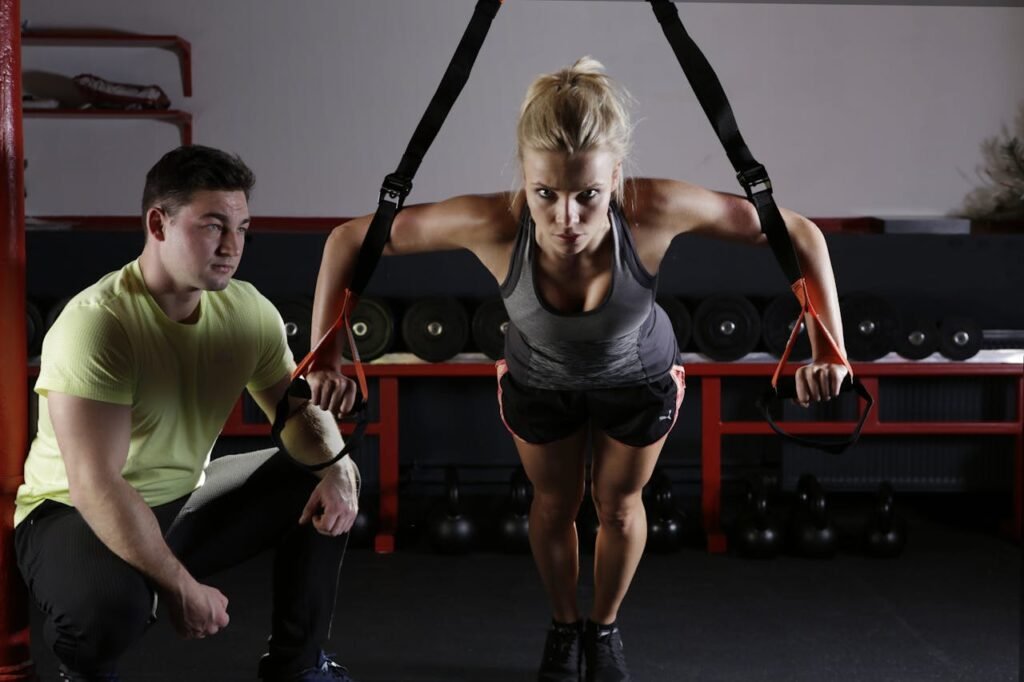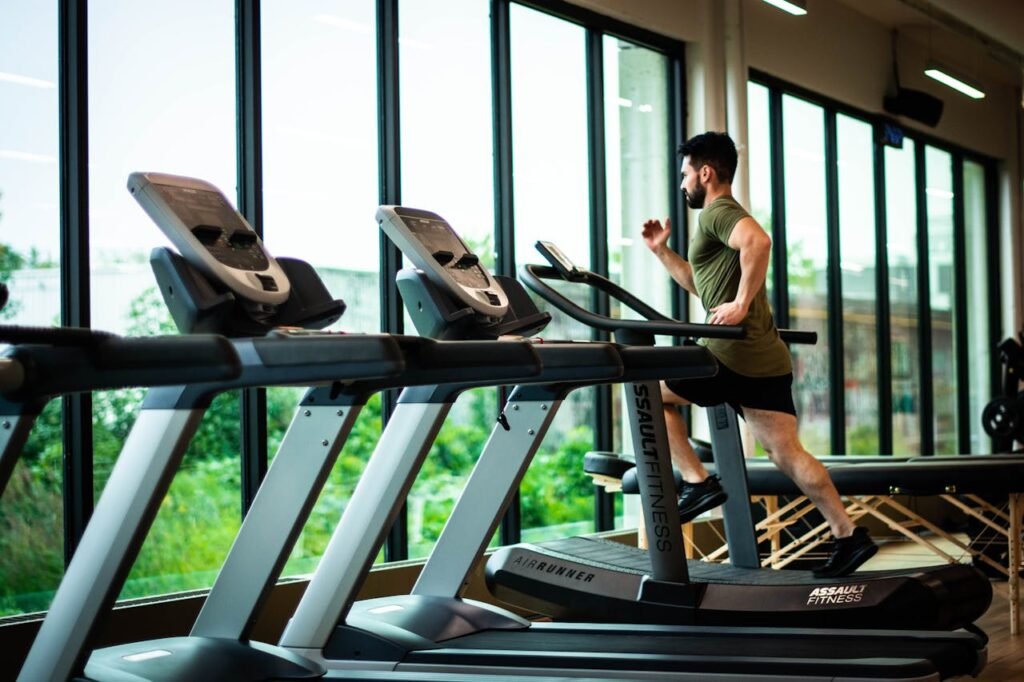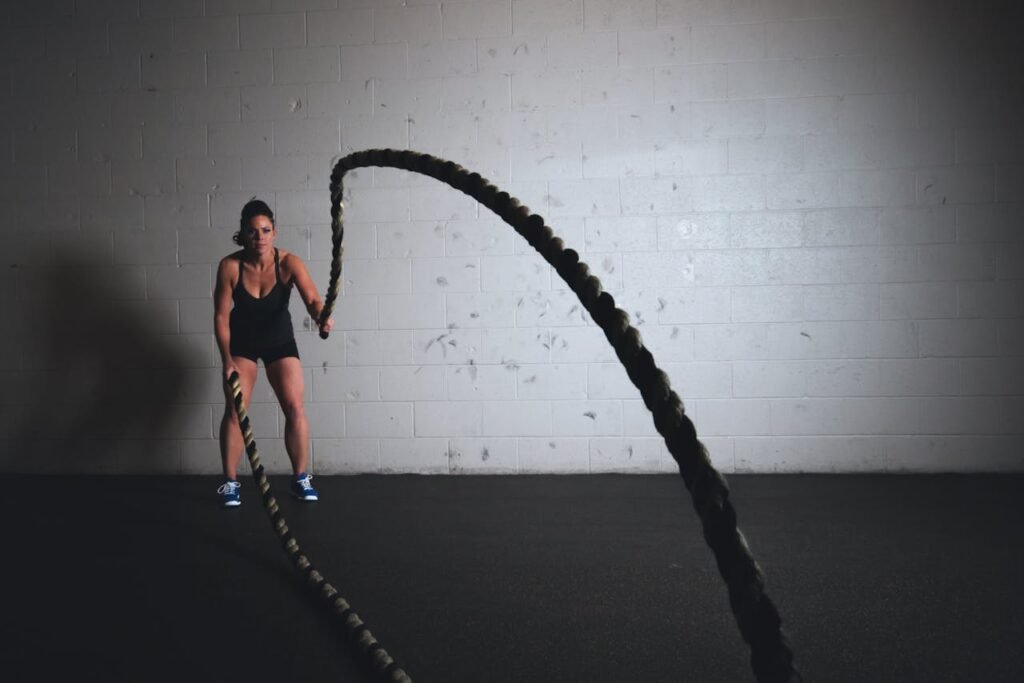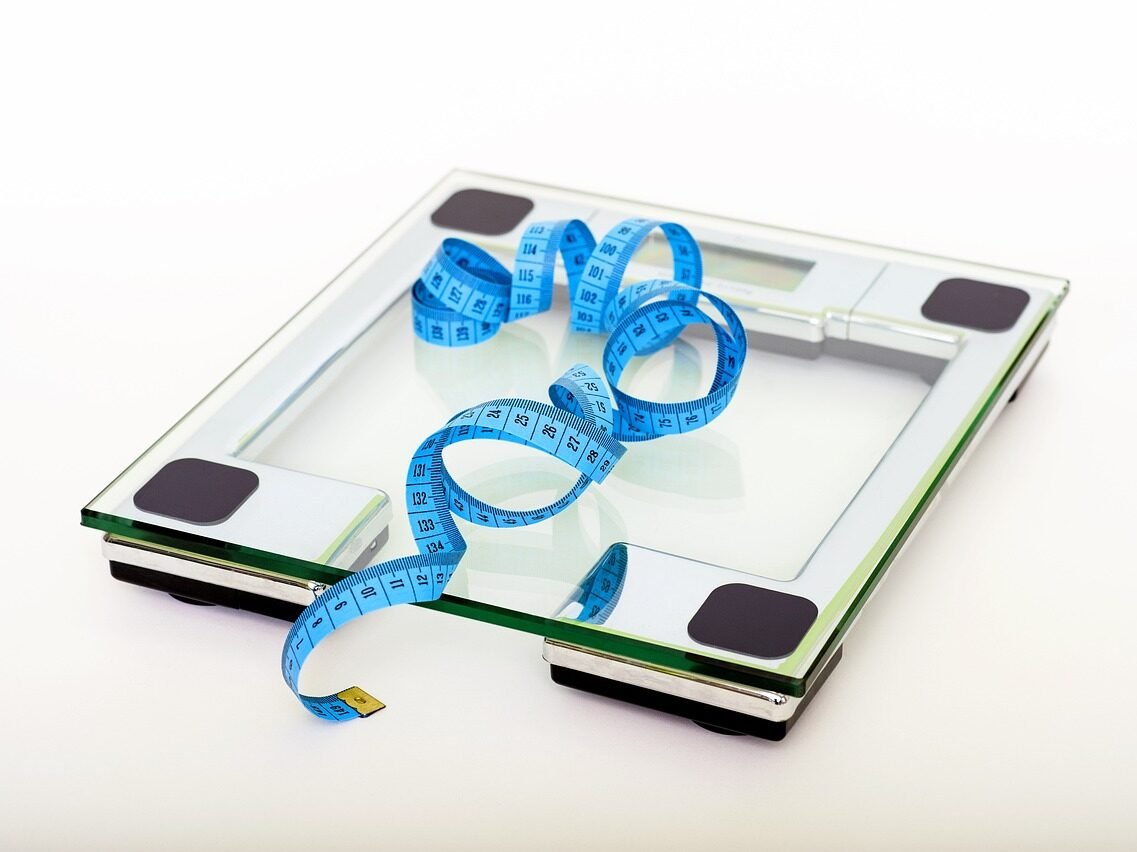Embarking on a fitness journey is exciting, especially for a beginner. However, this path is filled with countless options and questions, which can be overwhelming. From choosing between cardio or strength training, deciding on gym membership over home exercises, to determining the frequency of workouts, countless questions may arise in your mind, and finding the correct answer may require much time and effort. Then the following question may arise:
WHY START A FITNESS JOURNEY?
You already know the common answer to this question, which is “Exercise is beneficial for us.” Thus, I will not elaborate on the thing and bore you with the typical answers that you might already know.
The real answer to why you need to start a fitness journey is that you want to get fit for a better life, which can be both mental and physical. Fitness is a lifestyle, and many try to pursue it, but most of them fail due to a lack of commitment to the journey. I am pretty sure that you are not one of them, as you are searching for answers, and that is why you are reading this blog to get some assistance in your journey.
Before starting, you need to know that this journey (which I call fitness for beginners) is more of a mental and emotional challenge than a physical one. As a beginner, you need to know that your journey is unique and that you cannot compare it with others. Having a clear understanding of your journey will help you in the following scenarios that almost every beginner faces:
-
- Self-doubting: It is very common, and everyone does it in the initial stage. It would help if you learned from the mistakes you made and found a way to solve them rather than being depressed about them.
-
- Chasing Shortcuts: Trust me, there is no shortcut to a healthy body; it is earned through discipline and consistency. Give yourself some time and you will not regret it
-
- Losing Motivation: It is not just you; we all go through this problem. When we initially start, we have much excitement, but gradually it declines. Don’t worry; there is a solution for almost everything. Just get started for now. We will discuss in brief how you can make your exercises enjoyable so your motivation peaks up over time.
If you have decided to start your journey, this article will help you overcome the obstacles that you might face. Proper guidance can act like a time savior in this case. This article will dive into the common challenges you might encounter when beginning your fitness journey. We will break them down in a way that is easy to comprehend and will kick-start your fitness journey toward long-term success. Here are some key steps that you should follow to begin your fitness journey:

EVALUATE YOUR FITNESS LEVEL
How fit are you right now? It may seem like a difficult question, but it is not. You can better understand your fitness level by asking a few simple questions. Please remember that these questions are for beginners.
-
- How long can you continue a moderate walk or jog without being short of breath? If you can last 30 minutes or more, it shows good stamina.
- Can you do 8–10 push-ups in a row? If you can, it indicates that you have good muscle strength.
- Can you reach your toes without bending your knees? It will give you an idea of your flexibility.
Why is it important to know these things?
-
- By understanding your fitness level, you can identify your weakest areas. Think of it like planning a trip without a map. If you do not have a map, chances are you may get lost or struggle to reach your destination. Knowing your fitness level will act like a map to help you reach your goal effectively. You should work on improving all areas, but your primary focus should be on your weakest area.
For example, you need more muscle strength if you can easily jog for 30 minutes but can barely do five push-ups or pull-ups. In this case, focusing on strength training would be more beneficial than other physical exercises.


SET REALISTIC GOALS
A vague goal often leads to failure. When starting, it is important to have a real goal and reason. You will be disappointed if you want to emulate your favorite celebrity’s physique in a few months, as it is not a realistic goal.
Most celebrities with good physiques usually train for years; such results cannot be achieved in a few months. So start with a specific and realistic goal to track your progress. Whether you choose to do cardio, join a gym, practice yoga, or engage in any physical activity, having a realistic goal is important. Here are some tips to help you achieve it:
-
- Set short-term goals. Rather than having a big goal, break it evenly into several short-term goals. Make sure the goal is realistic.
For example, if your goal is weight loss, your starting goal should be to lose 2/3 of a pound in the first month. This way, you can assess the effectiveness of your current plan and make the necessary changes accordingly.
-
- Customize your goals to your liking. If you don’t like a particular exercise, you won’t stick with it. If you do not enjoy walking on the treadmill, you should rather swim, do flexibility exercises, or do other cardio workouts you enjoy. Do what you love, and track your progress over time.
In this age of social media, it’s easy to get influenced by unrealistic changes. Remember, Rome was not built in a day. You must invest time and effort to achieve anything; fitness is no exception. Avoid shortcuts because they are often too good to be true.

TRACK YOUR PROGRESS
Knowing the basics of exercise and implementing it towards your goals sounds exciting. But if you don’t see visible changes for a while, it can lead to demotivation.
That’s why tracking progress is crucial. However, it would help if you learned how to track your progress accurately; otherwise, it can derail you from your fitness journey. There are some effective ways to track your progress with little effort.
-
- Take a regular photo in the same place and create a separate album to track your physical changes visually. It can greatly increase your motivation. But remember that in the initial phase, do not expect significant visual changes. You will see noticeable changes after 4-5 weeks if you work out consistently.
-
- Weight cannot be a reliable indicator in the long run. Most of us judge ourselves by the numbers we see on the weighing scale. That judgment may mislead us because once you start exercising, your body reacts quickly, especially during strength training. There is a phase known as the “Newbie Gain” phase in which you can gain muscle and lose fat optimally as your body responds quickly to the new stimuli you get through weight training. So, if you measure your progress based on weight loss alone, you may be disappointed because the scale doesn’t show that you’ve gained muscle and lost fat in the process.
-
- Use measuring tapes to measure your chest, waist (under the belly button), biceps, and triceps to get a rough idea of progression every two weeks. Note it down to evaluate every month.
-
- Measure week-to-week progress in training. You can use a Google Sheet or MS Excel to note each session’s performance.
You might think you do not need it, and you can easily remember the last session performance, but trust me, I am telling you from personal experience that you cannot always do it.
For example, suppose you did five exercises in the gym in your last session, and your next session for the same exercises is after a week. There is a high chance that you will not remember the details of your previous training session. On the other hand, if you note it somewhere, it will help you remember how much weight you used, how many sets you did, or how much time you spent doing cardio in the previous session. Tracking like this will help you progress over time, as the data will allow you to make overtime moves.
You can click here for the MS Excel template for measuring progression for free.

FIXING YOUR NUTRITION:
Nutrition is the most overlooked aspect when starting our fitness journey. The basic weight gain or loss principle is the calories in and out.
If you want to lose weight, you need to be in a calorie deficit, which means you need to consume fewer calories daily than you are consuming now and vice versa.
Calories are the energy we get from food. We all have heard, “We are what we eat,” and to an extent, this statement is very true. With proper nutrition, everything will fall into place, as food is our body’s fuel. As a beginner, you do not need to overemphasize or underemphasize nutrition. There is a sweet middle ground.
By making some small tweaks, you can fix your nutritional needs. Do not worry; I will not tell you to be overly restrictive about your diet. Just make the following tweaks:
-
- Start fixing your meal plans slowly as a beginner. Most people do the opposite; they remove all their favorite foods from their diet from day 1, which can be considered unnecessary. There are more sustainable ways to fix your diet.
If you aggressively cut everything down from your diet, in 9 out of 10 cases, you will not be able to stick to it and fall off. As the weeks go by, your cravings will start to build up, which will lead to binge eating and ultimately falling off the diet. You need to understand that our bodies take time to adapt to changes; thus, you need to give your body time to adjust by cutting small portions each week.
-
- Split your meals evenly throughout the day. I suggest you have five medium-sized meals rather than three big meals.
You might ask why, as the calories will be the same even if you have the same amount of food in three big meals. The simplest answer is that if you spread your meals, it will help you fight starvation.
Suppose you eat dinner by 8:00 PM, and around 11:00 PM, you go to bed. You might feel hungry before bedtime, which may disrupt your sleep. On the other hand, if you finish your dinner by 8:00 PM and still have a snacking option, you can take it before bed, which will not make you crave food before bed.
-
- Try to avoid ultra-processed foods like chips, sugary drinks, sausages, etc. It is unhealthy for you and will increase your calorie intake. If you are craving it hard, you can have this kind of food once or twice a week, but you should try to avoid it and seek alternatives. Healthy eating can be tasty too keep that in mind.
For example, you can switch to diet pops rather than regular pops, which are lower in calories and will help you fight your cravings.
-
- Form a habit of reading food labels; though it might only sometimes be right, it can give you a good understanding of food calories.


RECOVERY
One of the most important and overlooked aspects of the fitness journey is recovery. Every individual needs to consider recovery when they start their fitness journey.
Suppose you did not recover from the previous exercise session. How would you even perform your next session optimally, let alone make progress in it? Sleep is very important in every aspect of our lives. After you exercise, your muscles need recovery.
If you sleep enough, your performance will increase over time. You need to get an ample amount of sleep each day. According to studies, 7 to 9 hours of sleep per day is recommended for an individual.
Another common mistake beginners make that hampers recovery is doing too much training. Training hard is good, but overtraining is bad.
As a beginner, it can be very hard to distinguish whether you are overtraining. However, it can be easily detected by looking into your recovery.
Soreness is very common when you start training, but if the soreness remains for more than three days, then that is a clear indication that you are training too much. Overtraining is counterproductive, and it hampers your recovery cycle. It would help if you kept that in mind.

If you follow the following tips, it may help you to ease up the overwhelming factors that you might encounter when you are starting your fitness journey. However, being consistent and committed to your journey is the most important thing. This article is a blueprint for beginners; we will discuss the topics in brief in the future for better understanding. You will face many ups and downs, but remember, you are not alone in this journey; we will always be there to help you as much as possible. Stay motivated and positive, believe in yourself, and I am 100% sure you can reach your goal, Champ!! Let me know your thoughts.

